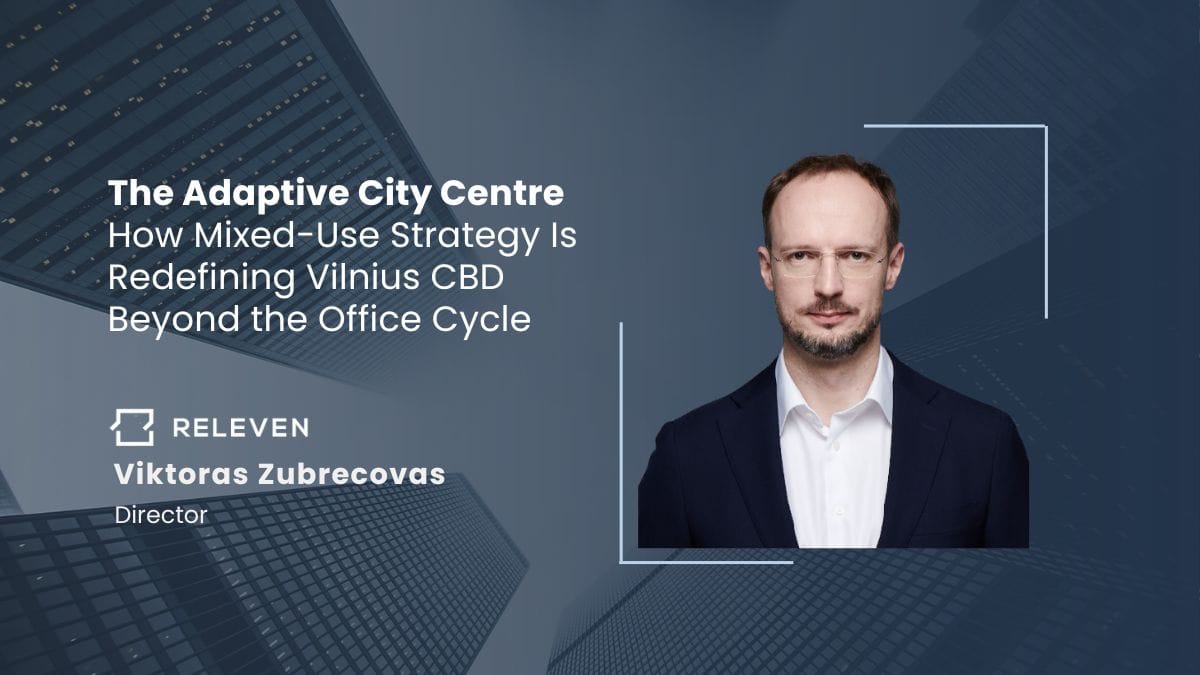Dubai’s tax‑free environment, robust rental yields and stable economy continue to attract international property buyers. For foreigners, understanding the mortgage process and eligibility is crucial before committing to a purchase.
In this guide, you’ll discover how non‑residents can finance a home in Dubai, the typical costs involved and how to maximise your investment.
If you’re considering buying a new‑build apartment or villa, start by speaking with an Entralon advisor via our contact page for personalised assistance.
Can Europeans get a mortgage in Dubai?
Yes, non‑UAE residents and expatriates can legally obtain a mortgage in Dubai, but the rules differ from those for UAE nationals. Lenders evaluate your nationality, income, age and employment status, and require proof of income and identity.
Loan‑to‑value ratios are lower for non‑residents than for citizens, meaning you will need a larger down payment.
Foreigners are eligible for mortgages in Dubai, whether or not they hold residency. Banks typically limit financing to buyers from approved countries and set age brackets (usually 21–65 years at loan maturity).
Applicants must show verifiable income, such as payslips, tax returns or business financials. The UAE Central Bank caps the loan‑to‑value (LTV) ratio for expatriate owner‑occupiers at 75 % for properties priced up to AED 5 million and 65 % for more expensive homes.
For non‑residents purchasing investment properties, banks apply even stricter limits: most lenders lend only 50–60 % of the property value, meaning a 40–50% down payment is required.
Who is eligible?
International buyers from countries such as the UK, Europe, the US, Canada, Australia and the GCC generally qualify.
You must be at least 21 years old and be able to repay the loan before you reach 65–70, depending on the lender. Banks also look for a minimum monthly income (often AED 10,000 or more) and a good credit history. Self‑employed applicants should show two years of audited financial statements.
The first step in financing your Dubai home isn’t applying for a mortgage; it’s understanding the market. At Entralon, you can browse a full, unbiased list of new‑build and off‑plan properties across Dubai, without promotional filters or hidden priorities.
Get a clear view of prices, locations, and availability. Once you’ve found a property that fits your goals, get in touch with us and we’ll guide you through the mortgage process from start to finish.
Which banks offer mortgages to Europeans in Dubai?
Several local and international banks cater to foreign investors. Key providers include Emirates NBD, Mashreq, RAKBANK, HSBC and Standard Chartered. Each bank has its own eligibility rules, maximum LTV ratios and minimum income requirements.
The UAE’s competitive mortgage market means banks actively court foreign buyers. Emirates NBD, for example, lends up to 75 % of the property value to expatriates on homes priced under AED 5 million, while HSBC markets “low down payment” loans that finance up to 60 % of the property’s value. Mashreq, RAKBANK and Standard Chartered also provide non‑resident loans, usually capping LTV at 50–60 %.
When comparing lenders, consider not only the interest rate but also the bank’s customer service, pre‑approval timelines and whether it requires you to open a local bank account.
Entralon’s team can introduce you to trusted lenders who offer mortgages.
What steps should European investors follow to secure a mortgage in Dubai?
The mortgage process involves four main stages: securing pre‑approval, choosing a freehold property, signing a sale agreement and completing registration.
Non‑residents should budget 3–6 weeks from pre‑approval to closing.
1. Get pre‑approval
Start by obtaining an “approval in principle” from your preferred lender. This letter confirms how much you can borrow based on your income and liabilities.
You’ll need to submit a passport copy, proof of income (such as salary slips or tax returns), six months of bank statements and, if self‑employed, business documents.
Some banks also request a credit report from your home country. Pre‑approval normally takes 5–10 working days.
2. Select a freehold property
Foreigners can only purchase in designated freehold zones, such as Downtown Dubai, Dubai Marina, Business Bay, Palm Jumeirah, Jumeirah Village Circle and Dubai Hills Estate.
Your mortgage must be for a completed property; off‑plan homes generally require full cash payment or developer financing.
3. Sign the sale agreement
Once you’ve chosen a property, you and the seller sign a Memorandum of Understanding (MoU), and you pay a deposit (usually 10%).
You then submit the full mortgage application. The bank will order a valuation and verify your documents before issuing the final loan offer.
4. Finalise transfer and registration
After loan approval, the remaining funds are transferred to the seller. You and the lender register the mortgage with the Dubai Land Department, after which you receive the title deed.
Allow around 3–6 weeks for the entire process from pre‑approval to transfer.
What are the key mortgage terms and typical costs for European buyers?
Non‑resident mortgages in Dubai differ from those offered to locals. Expect lower LTV ratios (50–60 %), higher down payments and interest rates ranging from around 4.5 % to 6.5 %. Upfront fees can add 5–7 % to your purchase price.
Mortgage terms for foreign investors
Typical upfront costs
What should European investors consider before taking a mortgage in Dubai?
Beyond the headline figures, buyers must consider restrictions on off‑plan financing, currency fluctuations, insurance requirements and the need for clear documentation. These factors can significantly affect the cost and feasibility of your investment.
- No off‑plan mortgages: Central Bank regulations cap LTV at 50 % for properties bought off‑plan. As a result, most lenders refuse to finance under‑construction projects for non‑residents.
- Currency risk: If your income is in dollars, euros or another currency, exchange rate swings can alter your repayment amount. Hedging or saving a buffer can mitigate this risk.
- Mortgage life insurance: A life insurance policy is mandatory when securing a mortgage in the UAE. Some banks bundle this into the loan; others allow external policies.
- Debt burden ratio: Banks cap your debt‑to‑income ratio at 50 %, meaning your total monthly debt payments must not exceed half your income.
- Documentation and credit history: While local credit history is not compulsory, lenders expect evidence of responsible borrowing, such as credit reports from your home country and proof of stable employment.
What benefits do mortgages offer to Dubai property investors?
Financing rather than paying cash allows investors to leverage their capital, maintain liquidity and potentially earn higher returns. Dubai’s strong rental yields and absence of ongoing property taxes enhance the appeal of mortgaged investments.
By using a mortgage, investors can spread their capital across multiple properties instead of tying up all their funds in a single purchase. In 2025, gross rental yields in Dubai average 6–8 %, higher than in many global cities, and the absence of annual property taxes or capital gains tax means returns remain relatively untaxed
Mortgage payments are capped at 50% of your monthly income, so most buyers should comfortably service their loans while benefiting from rental income. When leveraged wisely, a mortgaged property can provide stable cash flow and long‑term capital appreciation in one of the world’s most dynamic real estate markets.
Final thoughts
Securing a mortgage in Dubai as a European investor is entirely feasible, but it requires careful planning. Non‑residents must prepare for larger down payments, collect extensive documentation and consider currency and insurance factors.
Working with an experienced advisor can streamline the process and help you compare lenders. At Entralon, our non‑commissioned team specialises in new‑build and off‑plan properties in Dubai and London.
We offer transparent, daily‑updated listings and provide independent advice to international buyers. Whether you’re seeking a high‑yield apartment in Dubai Marina or a luxury villa on Palm Jumeirah, Entralon’s experts will guide you through every step, from selecting the right development to securing the best mortgage terms.
Frequently asked questions
1. Can I get a mortgage in Dubai without UAE residency?
Yes. Non‑residents from approved countries can obtain mortgages in Dubai, but lenders usually cap the loan‑to‑value ratio at 50–60 %.
2. How much down payment do I need as a foreign buyer?
Expect to provide at least 40–50 % of the property value as a down payment, as most banks restrict financing to half or slightly more of the purchase price.
3. Are off‑plan properties eligible for mortgages?
Generally not. UAE regulations limit off‑plan mortgage LTV to 50 %, and many banks decline to finance under‑construction projects for non‑residents.
4. Do I need life insurance to secure a mortgage?
Yes. Mortgage life insurance is mandatory in the UAE to protect both borrower and lender.
5. What are typical interest rates on Dubai mortgages in 2025?
Rates vary by lender and borrower profile. Fixed and variable mortgage rates generally fall between 4.5 % and 6.5 %, with some offers below or above this range























Discussion